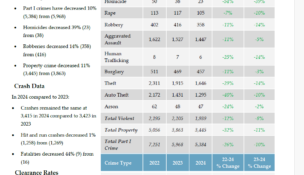Contribution for court costs denied
By: dmc-admin//February 16, 2005//
There is no right to contribution with regard to court costs from another nonprevailing party, the Seventh Circuit held on Feb. 7.
Roy Griffin was a truck driver employed by Active Transportation Company. One night, as he was driving a semi-tractor truck manufactured by International Truck and Engine Cor-poration, the driveline suddenly broke, and an accident resulted involving Griffin’s truck, a truck driven by Bane Elliott, and a car driven by Jesse Anderson, and in which Jestine Turn-bough was a passenger. Anderson and Turnbough were injured.
Three weeks earlier, Active Transpor-tation had taken the semi into Uhl Truck Sales for repairs.
Anderson and Turnbough sued Active Transportation, Griffin, Elliott, and Uhl Truck Sales. During the trial, all but Uhl settled with the plaintiffs. The jury found Uhl not negligent, and the plaintiffs appealed, raising a number of issues. The Seventh Circuit affirmed in a decision by Judge Richard A. Posner.
The plaintiffs had contended that the trial court erred during voir dire by refusing to ask two bald jurors whether they were "skinheads," a term for racist neo-Nazis.
Rejecting the contention, the court concluded, "The judge committed no error in refusing to go down the path marked for him by the plaintiffs’ lawyer. There was no racial issue in the case. Corporate defendants have no race; and in fact the representative of Active Transportation at the defendants’ counsel table during the trial was a black person. Jurors — poorly paid conscripts who play an important role in the American system of justice — have a right not to be humiliated; questions about their personal appearance, a subject about which most people are sensitive — questions such as ‘Why is your hair so long?’ ‘Why are you so fat (or so thin)?’
‘Why are your shirt tails hanging out?’ ‘Are you making a political statement by wearing black lipstick and a ring through your nose?’ — should therefore be avoided unless necessary to allay reasonable concerns about a juror’s impartiality."
The court continued, "Many men and even a few women shave their head as a fashion statement (Michael Jordan, the former basketball star, and Richard Grasso, the deposed chairman of the New York Stock Exchange, being conspicuous but not isolated examples); some of course lose all their hair because they are undergoing chemotherapy. Balding young men sometimes decide to go all the way. American soldiers often wear their hair cut so short that their heads look shaven, and that may well be the explanation for the ‘skinhead’ appearance of the juror who had left the army recently. The presence of a shaved head is feeble grounds for suspecting that a person is a skinhead, even if he lives in, let alone merely near, an almost all-white community, as tens of millions of whites do. The questions about reading matter and organizations should have smoked out the presence of any skinheads, if they answered the questions truthfully; if they did not, neither would they answer the question ‘Are you a skinhead?’ truthfully were it put to them by the judge."
|
What the court held Case: Anderson v. Griffin, Nos. 04-1748 & 04-2324. Issues: Is there a right to contribution of court costs between nonprevailing parties? Holding: No. Federal common law does not recognize contribution unless one or more losing party is responsible for a disproportionate share of the costs. |
The plaintiffs also contended the trial court erred by instructing the jury as follows: "Defendants owed Plaintiffs only the duty to exercise reasonable care. The mere fact that an accident occurred, or that the Plaintiffs were injured or otherwise sustained damages, does not mean that either the Plaintiffs, or the Defendants, were negligent. Negligence can never be inferred solely, and without more, from the occurrence of an accident and resulting damage."
Citing Indiana substantive law, the court of appeals held this was a proper instruction. The court acknowledged that the term, "unavoidable accident" is an anachronism, and should be avoided, but found this insufficient to conclude that the instruction confused the jury.
Finally, after finding the jury’s verdict was not contrary to the weight of the evidence, the court turned to the issue of contribution.
The plaintiffs argued that the defendants took more depositions than was necessary, and thus, drove up the court costs unnecessarily. The court not only rejected the argument, but called it "bad," because the market constrains defendants from running up excessive expenses: "as we have had occasion to note recently, a painstaking judicial inspection of fee claims (and equally cost claims) is unnecessary when there is a market constraint on running up excessive expenses. Taco Bell v. Continental Casualty Co., supra, 388 F.3d at 1075. When taking depositions the defendants could have had no confidence that they were going to win the case and thus be able to submit a bill of costs, or that if they won and therefore could submit such a bill the plaintiffs would have the wherewithal to pay it. So they had an incentive not to take unnecessary depositions or otherwise incur excessive costs. That incentive was a better check on extravagance than would be a court’s effort to decide after the fact whether a particular expenditure was sensible given its anticipated contribution to a favorable outcome of the litigation."
Addressing division of costs between the two nonprevailing plaintiffs, the court held that costs must be joint and several, with no right of contribution.
The court stated that the presumptive rule is joint and several liability, unless it is clear that one or more of the losing parties is responsible for a disproportionate share of the costs, citing White v. Sundstrand Corp., 256 F.3d 580, 585-87 (7th Cir. 2001), and cases from other jurisdictions.
| |
||
|
Related Links Related Article |
||
| |
||
Discussing contribution generally, the court wrote, "Ordinarily when parties are jointly and severally liable, it means that each party is fully liable, subject to the constraint that the claimant cannot recover more than his total entitlement. This leaves him free to pick and choose and if he wants collect the total entitlement from one of several liable persons — unless there is a rule permitting contribution among joint tortfeasors, or in other words permitting a liable party who has been charged more than his proportionate share (but not because he was causally responsible for more than a proportionate share, in which event it would not really be disproportionate) to obtain compensation from his co-tortfeasors. A brief dictum in Concord Boat Corp. v. Brunswick Corp., supra, 309 F.3d at 497, assumes that there is such a rule of contribution in regard to court costs but does not discuss the pros and cons; the other cases that embrace the rule of joint and several liability for costs do not mention contribution at all."
The court then noted that the federal courts are reluctant to recognize a right of contribution, citing numerous cases, and justified their reluctance as follows: "all that a right of contribution does is add to the costs of litigation, and so unless there is a compelling reason to suppose that the legislature would want such a right to be enforced, … it will not be."
The court added, "The bearing of the cases that we have cited and of the considerations that support them was not considered by the court in the Concord case. We are given no reason to think that recognizing a right of contribution with regard to court costs would serve any purpose other than to encumber federal litigation, which needs no additional encumbrances. No showing has been made that a particular plaintiff or plaintiffs was disproportionately responsible for the costs that the judge has awarded against them, and so each plaintiff is jointly and severally liable for the costs that the judge awarded to the defendants."
Accordingly, the court affirmed.
Click here for Case Analysis.
David Ziemer can be reached by email.
Legal News
- Steven Avery prosecutor Ken Kratz admits ‘mistakes were made’
- Colombian national extradited to Milwaukee faces International narcotics-trafficking conspiracy charge
- MPD: Milwaukee homicides down nearly 40 percent compared to last year
- EVERS: Republican lawmakers No-Show at special meeting to release statewide PFAS funding, stabilize healthcare access
- Wisconsin ICAC Task Force conference on Missing and Exploited Children highlights increase in sextortion cases
- More than 300 Wisconsin officers back in law enforcement after being fired or forced out
- Former Trump staffer who said to ‘fan the flame’ after 2020 loss hired to lead Wisconsin GOP
- Gov. Evers appoints David Casey to Serve as DOR Secretary
- Former Marine sentenced for Molotov Cocktail attack against Planned Parenthood Clinic
- ABA names 34th Annual Margaret Brent Women Lawyers of Achievement Awards honorees
- FBI launches criminal investigation into Key Bridge collapse
- Man charged in slaying after woman’s leg found at Milwaukee-area park
WLJ People
- Power 30 Personal Injury Attorneys – Russell Nicolet
- Power 30 Personal Injury Attorneys – Benjamin Nicolet
- Power 30 Personal Injury Attorneys – Dustin T. Woehl
- Power 30 Personal Injury Attorneys – Katherine Metzger
- Power 30 Personal Injury Attorneys – Joseph Ryan
- Power 30 Personal Injury Attorneys – James M. Ryan
- Power 30 Personal Injury Attorneys – Dana Wachs
- Power 30 Personal Injury Attorneys – Mark L. Thomsen
- Power 30 Personal Injury Attorneys – Matthew Lein
- Power 30 Personal Injury Attorneys – Jeffrey A. Pitman
- Power 30 Personal Injury Attorneys – William Pemberton
- Power 30 Personal Injury Attorneys – Howard S. Sicula











